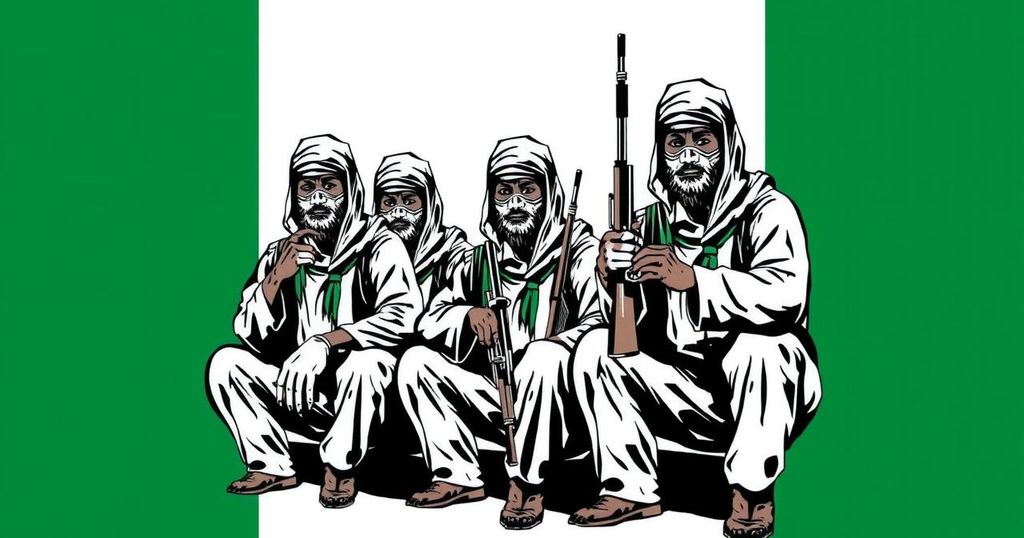Understanding the Roots of Lakurawa: A Mischaracterized Terror Threat in Nigeria

The Nigerian army has labeled Lakurawa, a terrorist group active since 1999, as a new entity emerging from recent Sahel turmoil. Analysts argue that this mischaracterization obscures the group’s historical roots and the prevailing issues of insecurity driven by government failures. Ongoing military operations are insufficient in addressing the complex socio-economic conditions that enable such groups to thrive, underscoring the need for comprehensive security reform.
The emergence of the terrorist group Lakurawa in Nigeria’s north-west has drawn significant attention, particularly as the Nigerian army has recently classified it as a new entity arising from the turmoil following coups in the Sahel region. Analysts contend that this portrayal is misleading, as the group has been operational since 1999. According to Murtala Ahmed Rufa’i, a peace and conflict studies expert, Lakurawa originated from herders in the border areas, who transformed into a criminal organization by 2016. Initially invited by local leaders to aid against armed banditry, the group evolved into a substantial security threat and imposed radical interpretations of Islam on local communities.
Rufa’i’s research indicates that the Lakurawa, leveraging their historical roots, represent a unique blend of herder and insurgent identities. Their operations have intensified in a region marked by insecurity and poverty, leading to a proliferation of ungoverned spaces. Such conditions have allowed groups like Lakurawa to thrive, highlighting the failures of Nigeria’s security forces to maintain order and protect civilian lives. Consequently, their characterization as a new group serves to deflect responsibility from the underlying issues facing the region.
Despite ongoing military efforts to counter their activities, the deep-seated issues of insecurity, the lack of effective local law enforcement, and the porous borders remain major obstacles. The reliance of local communities on groups such as Lakurawa for protection demonstrates a crucial breakdown in government responsibility. Experts emphasize the need for enhanced preventive measures in regional security cooperation, capacity building for local law enforcement agencies, and a reassessment of how security resources are allocated in order to address the persistent threat of violent extremism.
The emergence of terrorist groups in Nigeria, especially in the north-western region, is deeply interconnected with historical socio-economic challenges, government neglect, and a burgeoning security vacuum. Lakurawa, initially formed by herders, reflects a complex interplay of local dynamics and cross-border influences from the Sahel. Major geopolitical shifts, particularly military coups in neighboring countries, have exacerbated existing tensions and contributed to the rise of such groups as they capitalize on local grievances and security deficiencies. The classification of Lakurawa as a new terror group overlooks two decades of its existence, thereby failing to address the structural issues that allow such entities to flourish.
The categorization of the Lakurawa as a new terrorist group distracts from its historical context and the overlooked dynamics of insecurity in Nigeria’s north-west. The group’s evolution from a local protective force to a significant security threat underscores systemic failures in governance and security provision. Ultimately, addressing the challenges of ungoverned spaces, border control, and community resilience must be prioritized to reclaim stability from groups like Lakurawa, necessitating comprehensive reforms in security approaches and policy.
Original Source: www.defenceweb.co.za







